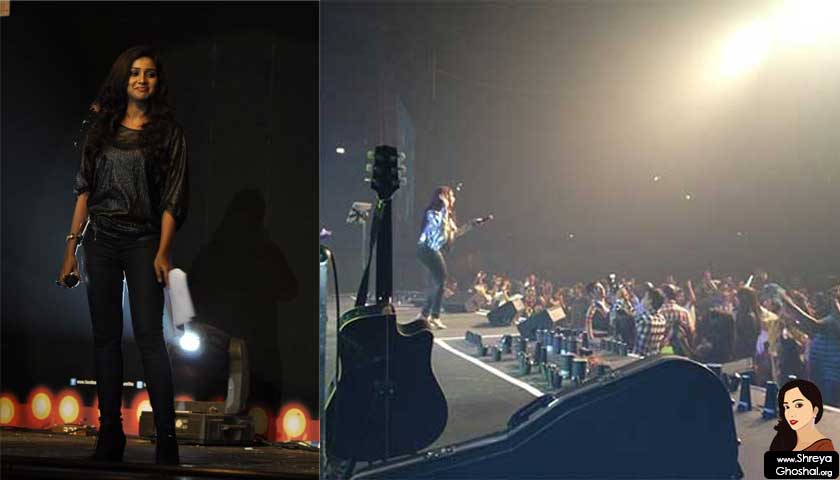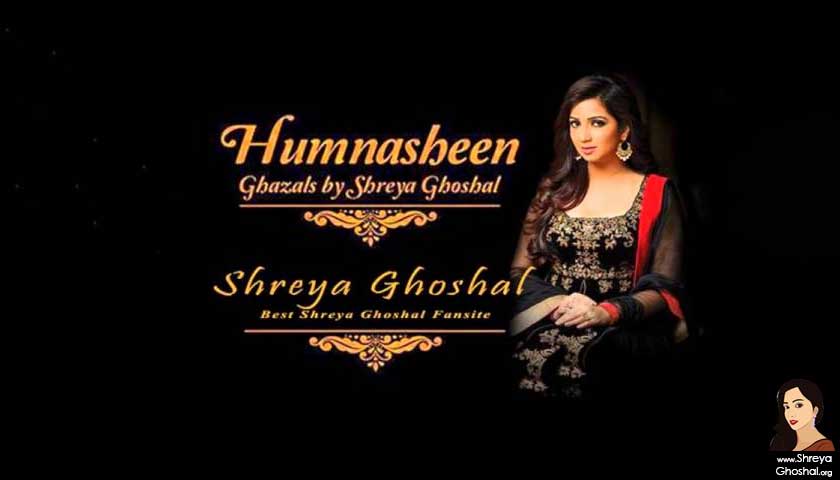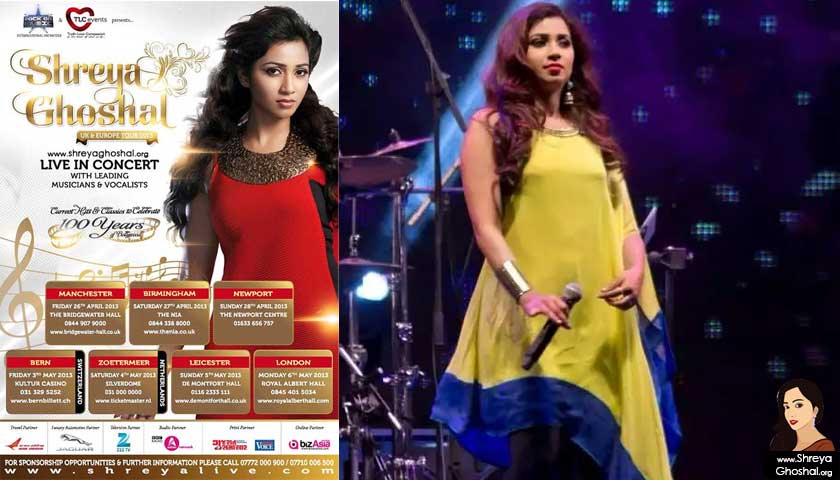Shreya Ghoshal performs in South Africa
Shreya Ghoshal, one of India’s leading playback singers of Bollywood, performed in Johannesburg and Durban in December. Cineyug Entertainment conceptualized, managed and executed her concert along with the logistics, creatives and production.
The international promoters in South Africa wanted to organize a show with Shreya Goshal. They got in touch with Cineyug who got Shreya Goshal on-board for the show. Cineyug locked her prices and coordinated with logistics for the same whereas ticket sales were managed by the promoter. Local vendors helped with the setup and coordinated requirements for production by providing sound, lights, etc. Cineyug had shot for the promos in India itself and sent it to the promoters in South Africa where they broadcasted it on Zee TV South Africa and on the radio as well.
It was attended by a crowd of 4,000 at Emperors Palace in Johannesburg and a crowd of 5000 at ICC in Durban. Her eight-member band backed her up as she performed for 2-2.5 hours. A co-singer performed with her for a few duet songs.
Commenting on the show, Mohomed Morani, Director, Cineyug Entertainment, said: “People are usually holidaying during the festive month of December but we are glad to see such a great turnout. Her fan following in South Africa is higher than you’d expect, since her song ‘Radha’ from the movie Student Of The Year is a rage. We didn’t face any challenges as such even though it was an international event since we coordinated very well with our vendors in South Africa. An efficient team of four people from Cineyug managed the event on the day. Most of the planning was done a few days prior to the event and we were glad it was a success.”
South Africa
South Africa, officially the Republic of South Africa (RSA), is the southernmost country in Africa. With over 59 million people, it is the world’s 24th-most populous nation and covers an area of 1,221,037 square kilometres (471,445 sq mi). South Africa has three capital cities: executive Pretoria, judicial Bloemfontein and legislative Cape Town. The largest city is Johannesburg. About 80% of South Africans are of Black African ancestry, divided among a variety of ethnic groups speaking different African languages. The remaining population consists of Africa’s largest communities of European, Asian, and multiracial ancestry.
It is bounded to the south by 2,798 kilometres (1,739 mi) of coastline of Southern Africa stretching along the South Atlantic and Indian Oceans; to the north by the neighbouring countries of Namibia, Botswana, and Zimbabwe; and to the east and northeast by Mozambique and Eswatini (former Swaziland); and it surrounds the enclaved country of Lesotho. It is the southernmost country on the mainland of the Old World or the Eastern Hemisphere, and the most populous country located entirely south of the equator. South Africa is a biodiversity hotspot, with a diversity of unique biomes and plant and animal life.
Indian South Africans
Indian South Africans are citizens and residents of South Africa of South Asian descent. The majority live in and around the city of Durban, making it one of the largest Indian cities outside India. Many Indians in South Africa are descendants of migrants from Colonial India (British India) during late 19th-century through early 20th-century. At times Indians were subsumed in the broader geographical category “Asians”.
There remains a cultural, religious and racial overlap for “Asians” and “Indian South Africans”. During the most intense period of segregation and apartheid, “Indian”, “Asian”, “Coloured” and “Malay” group identities controlled numerous aspects of daily life, including where a classified person was permitted to live.
Under the British imperial regimes of the early twentieth century, Indians were accorded the same subordinate status in society as blacks. During ideological apartheid from 1948 to 1994, Indians were called and often voluntarily accepted, terms that ranged from “Asians” to “Indians”, and were legally classified as being members of a single race group. Some citizens believed that these terms were improvements on the negatively defined identity of “Non-White”, which was their previous status. Politically conscious and nationalistic Indian South Africans wanted to show both their heritage and their local roots. Increasingly they self-identified as “African”, “South African” and, when necessary, “Indian South Africans”.
Nonetheless, the spread of democratic elections has sometimes heightened ethnic loyalties. Politicians and groups have looked for means to mobilise power in the competitive parliamentary democracy which South Africa has become since 1994.
11 January 2013 – eventfaqs.com




